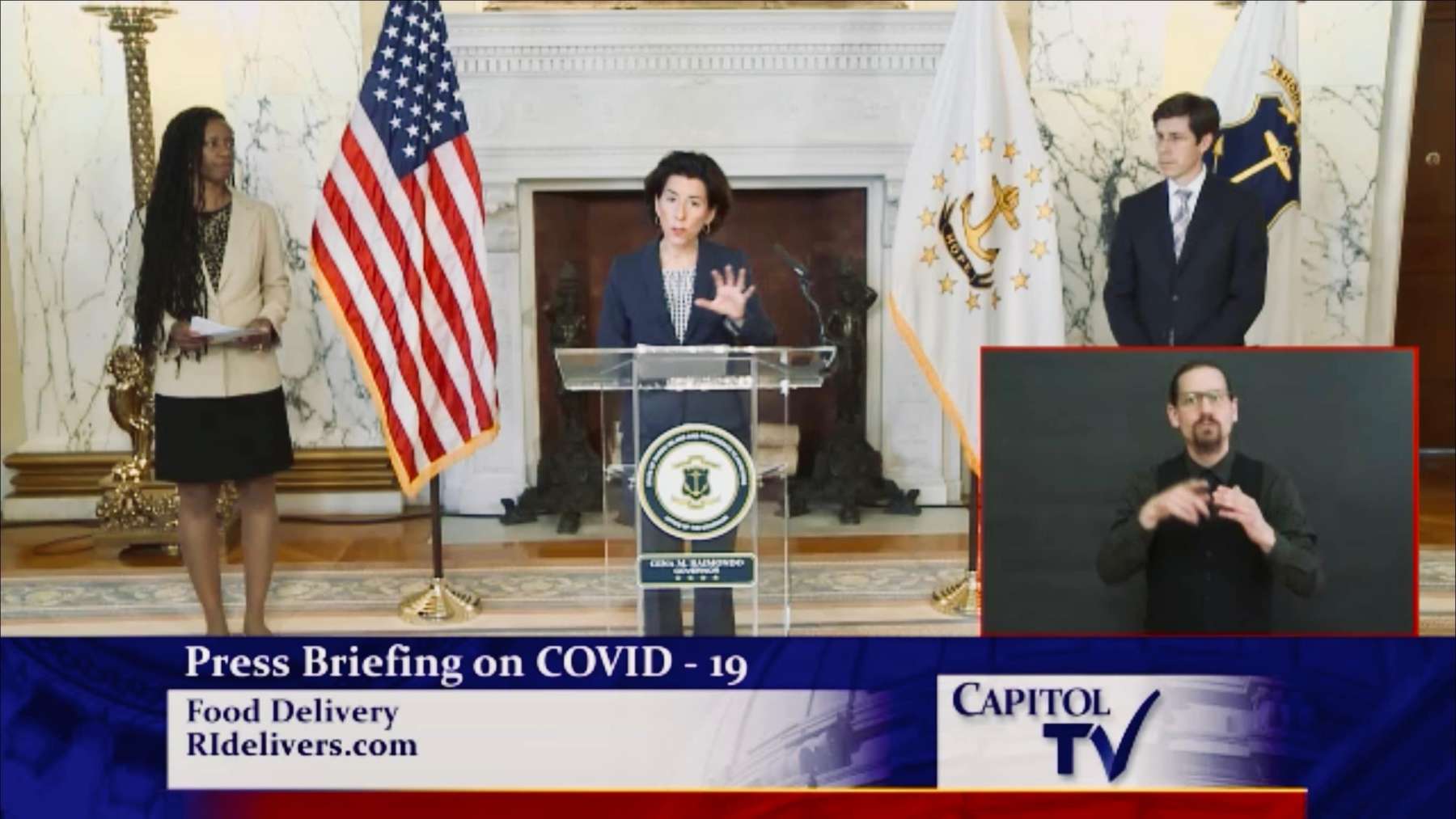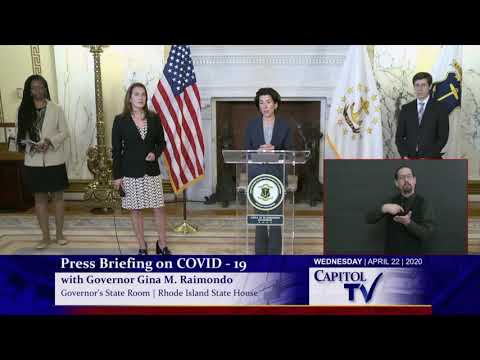COVID-19 is exposing existing inequalities. Are state leaders partly to blame?
“We are learning a lot of lessons from this pandemic. My hope is that one we will all learn and remember is the criticality of the work of the people who are going in every day in Rhode Island.“ On Wednesday Rhode Island Governor Gina Raimondo took a question from UpriseRI during her daily televised COVID-19 press briefing. “Many of
April 23, 2020, 10:14 am
By Steve Ahlquist
“We are learning a lot of lessons from this pandemic. My hope is that one we will all learn and remember is the criticality of the work of the people who are going in every day in Rhode Island.“
On Wednesday Rhode Island Governor Gina Raimondo took a question from UpriseRI during her daily televised COVID-19 press briefing.
“Many of the current difficulties facing essential frontline workers, including healthcare workers and store clerks, are the result of failed state policies that have dismissed the lives and contributions of these workers in the past,” wrote UpriseRI. “What specifically needs to change going forward?”
Note that reporters are only given 300 characters to frame and ask their questions. Sometimes nuance is lost. For instance, what kinds of policies was I referring to? Things like minimum wage, tax structures, paid sick leave, rent, incarceration – the kinds of policies and laws that make it harder to be the working poor, aka, essential frontline workers, in Rhode Island.
“I don’t think I would agree with your characterization,” said Governor Raimondo, unsurprisingly. “But I will say this: I’ve been quite clear that we have to do everything we can to help our frontline workers. We are working on how to get them more personal protective equipment, how to enhance their wages, making sure that there are appropriate benefits in the meantime, fighting hard to get additional SNAP benefits, which I was able to announce a couple of days ago.
“So, there is much more to do,” continued Raimondo. “We have to continue to lift wages and frankly, we have to continue to increase education levels. One of the most heartbreaking things about this crisis is that if you look at who is hardest hit in the economy, it’s folks who are lowest skilled, lowest paid. So we’re going to get them through it now, through protecting them and increasing their wages and giving appropriate sick leave and sick time and paid leave. But the real thing we need to do is to upskill folks so they can make a decent living with decent benefits and a decent job. This crisis has laid that bare for us, and we have to recommit ourselves to that mission.”
The first comment I received about my question via text was one that took issue with the idea that there is some kind of difference between the “lowest skilled, lowest paid” members of our society and the rest of us. Everyone, I was reminded, deserves a living wage, access to sick days and safe working conditions.
Upskilling folks is hardly a solution, because someone still has to deliver our packages, run the cash registers, stock the shelves, care for the elderly, clean and sanitize public spaces, take out the garbage, change the bed sheets, and all the other “essential,” but “low-skill” work.
Raimondo wants to get these people to a place where they can “make a decent living with decent benefits and a decent job.” But these people have decent jobs. They have jobs worthy of dignity, respect and living wages. Just because they are not CEOs, entrepreneurs, investment bankers, lawyers or members of another job worthy of the Governor’s respect does not mean that they are working indecent jobs. They are the ones doing the essential work – without the respect, compensation or safety due to them.
Days earlier, Dr Nicole Alexander-Scott spoke at length about the existing inequalities that set the stage for some groups to be hit harder than others by COVID-19 in Rhode Island. She was commenting on the fact that the disease seems to be hitting Latino and Black populations at disparate rates.
“Why are we seeing this?” asked Dr Alexander-Scott. “There are a number of factors that are likely in play. One of these factors could be the makeup of our critical workforce… There are also people in many other fields who are out there working every day. That includes people who are not licensed healthcare providers, but who work in hospitals and other healthcare facilities helping to sustain the work that gets done in those facilities. And it also includes people who work in food processing plants and in other elements of the food industry as well as in warehouses and in manufacturing facilities.” [emphasis mine]
Critical workforce. Lowest skilled. Essential workers. Lowest paid.
“These people are going to work every day because we need them,” said Dr Alexander-Scott. “We depend on them as a society. We are learning a lot of lessons from this pandemic. My hope is that one we will all learn and remember is the criticality of the work of the people who are going in every day in Rhode Island. [emphasis mine]
So what can be done? See:







